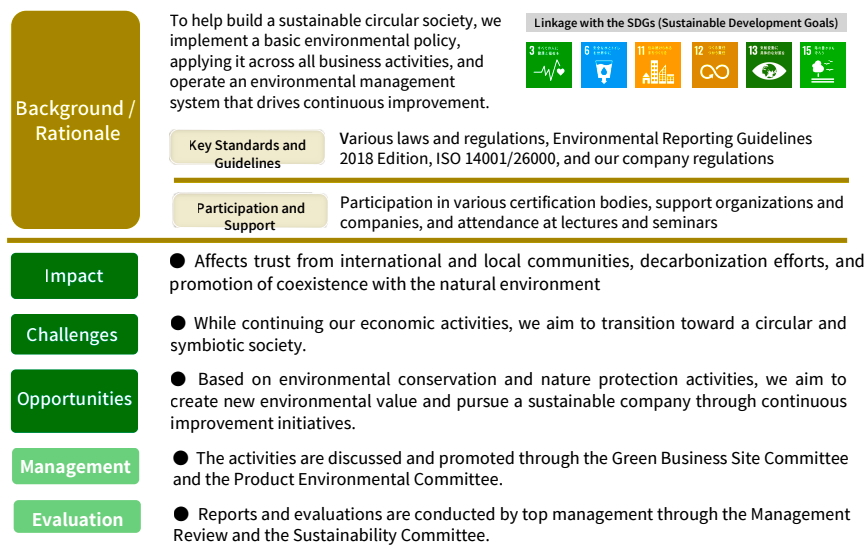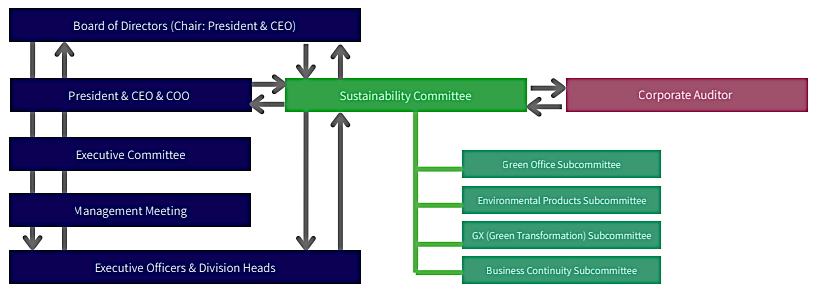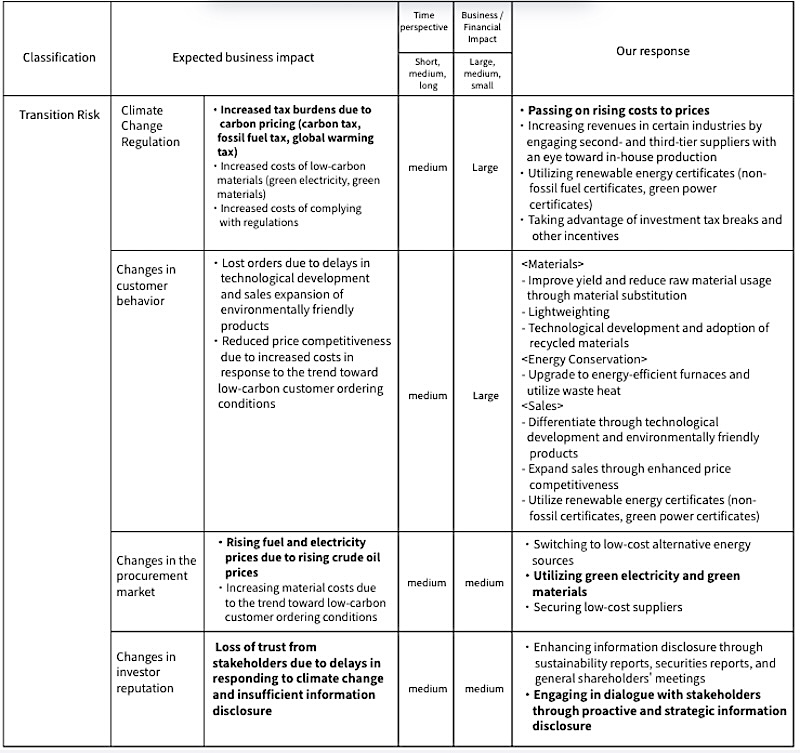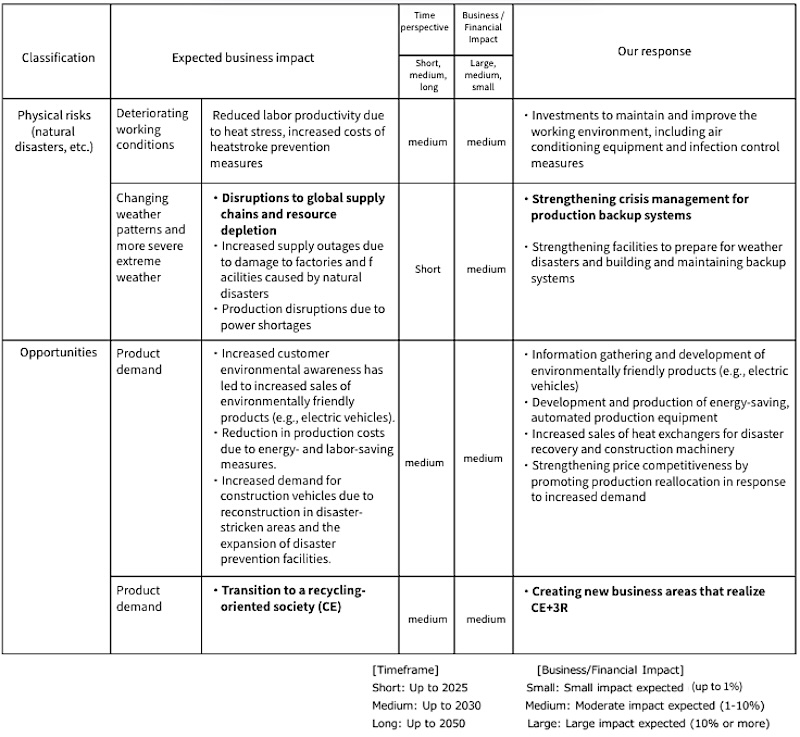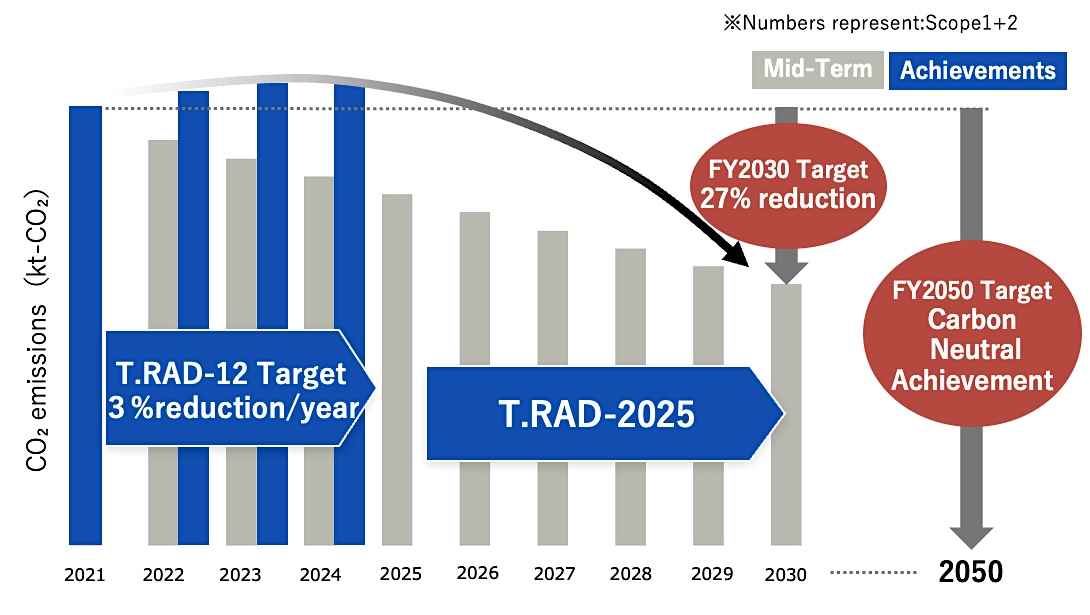Environment
Environmental management
Environmental Policy & Policy
Basic Philosophy (Guiding Principle)
T.RAD Co., Ltd. and T.RAD Group aim to become the world’s No.1 heat exchanger manufacturer contributing to the realization of a carbon-neutral society. Each employee prioritizes environmental friendliness and actively engages in the conservation of the environment and biodiversity, as well as the protection of nature, thereby contributing to the development of a prosperous and bright society.
Basic Policy (Code of Conduct)
To realize the Basic Philosophy, T.RAD Co., Ltd. and T.RAD Group will assess and predict environmental impacts at every stage of the product life cycle, establish objectives and targets for environmental and biodiversity conservation, and promote the utilization and continuous improvement of a company-wide environmental management system. Through these efforts, we will pursue sustainable corporate growth and the well-being of customers, shareholders, employees, business partners, and the local community.
- Work together with customers and business partners to prevent global warming and achieve carbon neutrality by reducing greenhouse gas emissions.
- Promote the development and sales of heat exchanger products that meet the needs of diverse power plants in the era of electrification.
- Suppress the emission of environmental pollutants and strive to prevent environmental pollution.
- Promote the effective use of resources and reduction of waste, while striving for recycling and resource conservation.
- Actively engage with local communities and contribute to the conservation of the environment, biodiversity, and nature.
- Comply with environmental laws, regulations, and other requirements, establish voluntary management standards, and strive to raise the level of environmental conservation.
- Establish and enhance environmental management, and strengthen environmental education and awareness for all members of the organization.
- Actively disclose environmental information and promote mutual understanding with stakeholders.
Information Disclosure Based on the TCFD Framework
Climate change is a key issue impacting our business continuity. In April 2022, we endorsed the TCFD recommendations to help reduce financial marketrisks arising from climate change. By analyzing related risks and opportunities and integrating them into our strategy and risk management, we will disclose progress transparently, contribute to decarbonization, and drive further growth.
※Established in 2015 by the international body, the Financial Stability Board. It recommends assessing business risks and opportunities arising from climate change, understanding their financial impacts, and disclosing related information.
※TCFD(Task Force on Climate- related Financial Disclosures)
Governance
We view climate change as a key issue for fulfilling our social responsibility and sustaining growth, and manage it through the Sustainability Committee. Chaired by the President and joined by directors, the committee oversees climate-related risks and opportunities, policies, targets, and progress on initiatives as part of our corporate governance system.
Strategy
We analyze climate-related scenarios based on IEA and IPCC data to develop our strategies.
xEV* demand is expected to grow severalfold by 2050. Strengthened fossil-fuel regulations may pose risks to our operations, but appropriate regulations could expand opportunities for our environmentally friendly products.
*xEVs: HEVs, PHEVs, BEVs, and FCEVs
Risk Management
Climate change presents both transition risks—such as regulations, technologies, and market shifts—and physical risks—such as extreme weather and rising temperatures. We evaluate these risks and opportunities by time horizon (long, medium, short) and business/financial impact (large, medium, small) to identify the most material factors.

